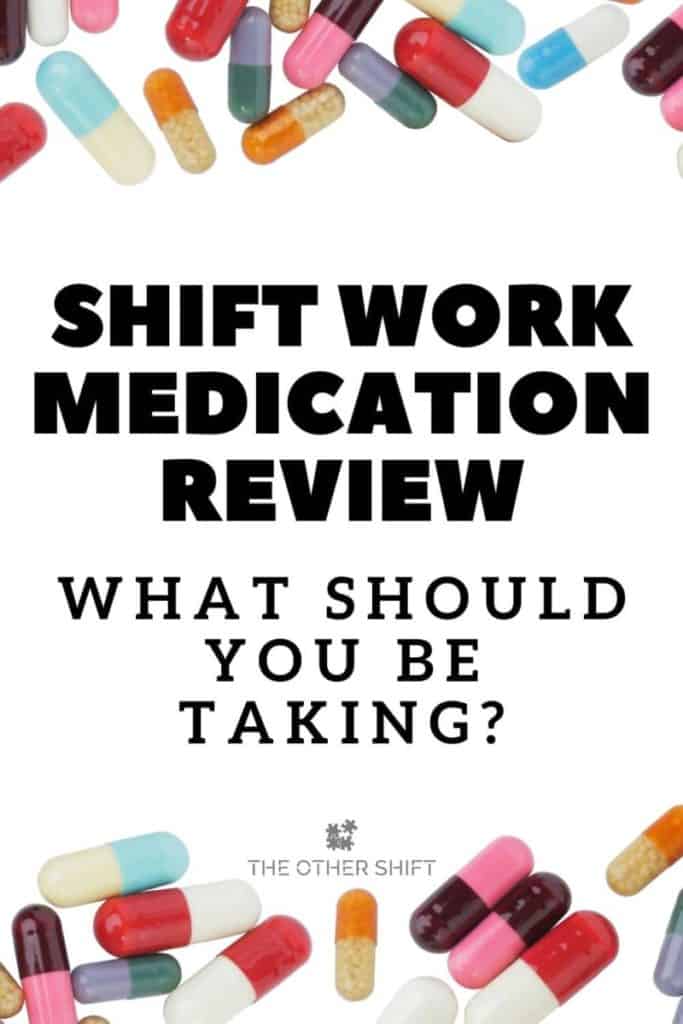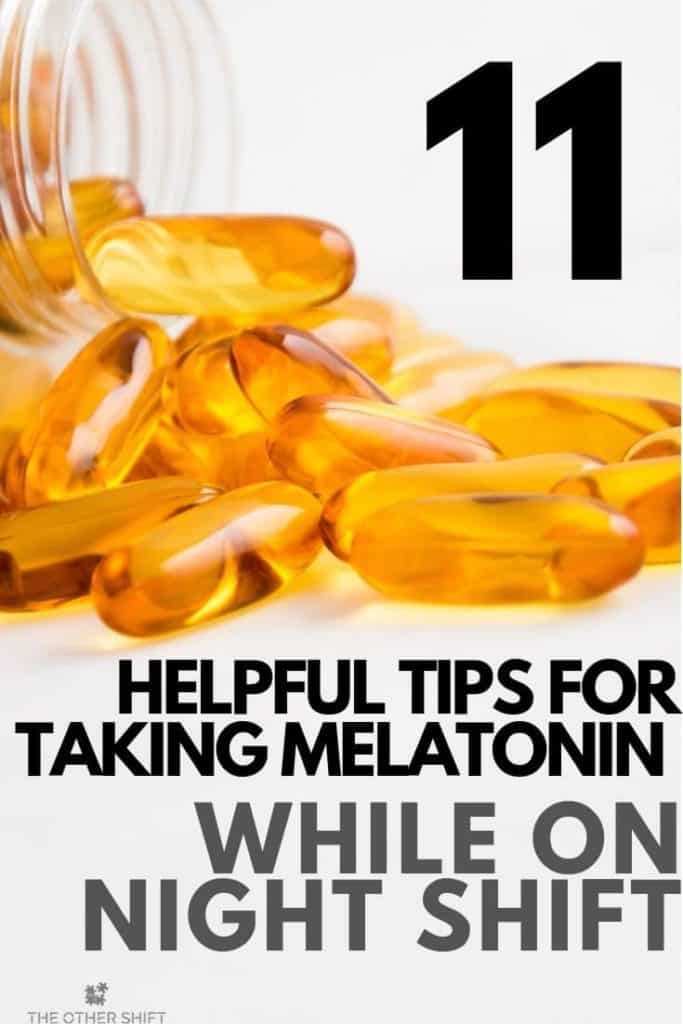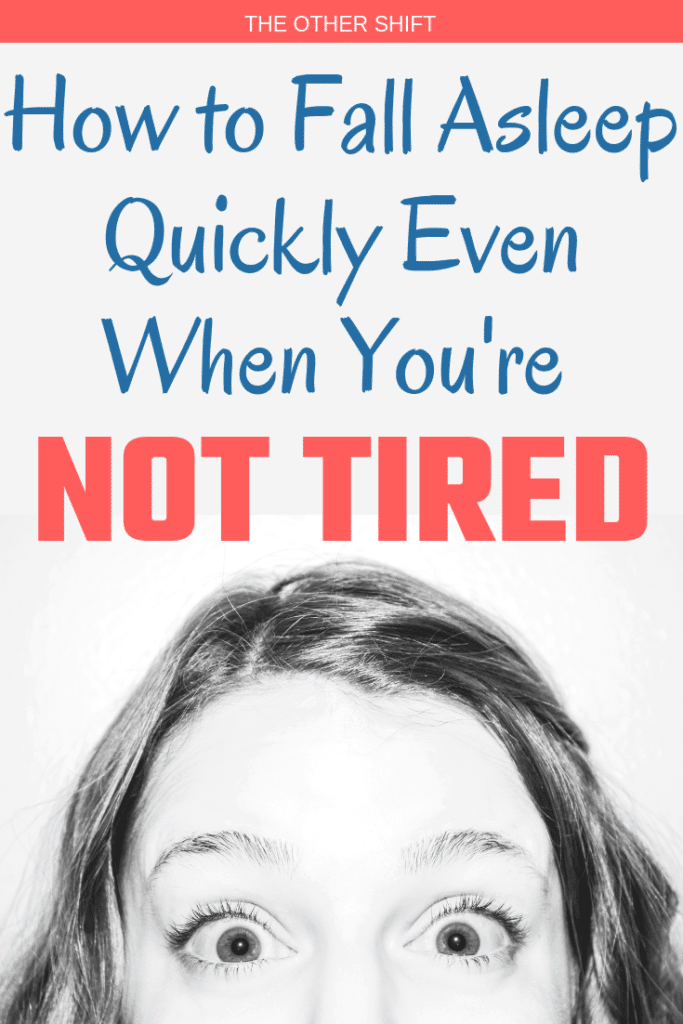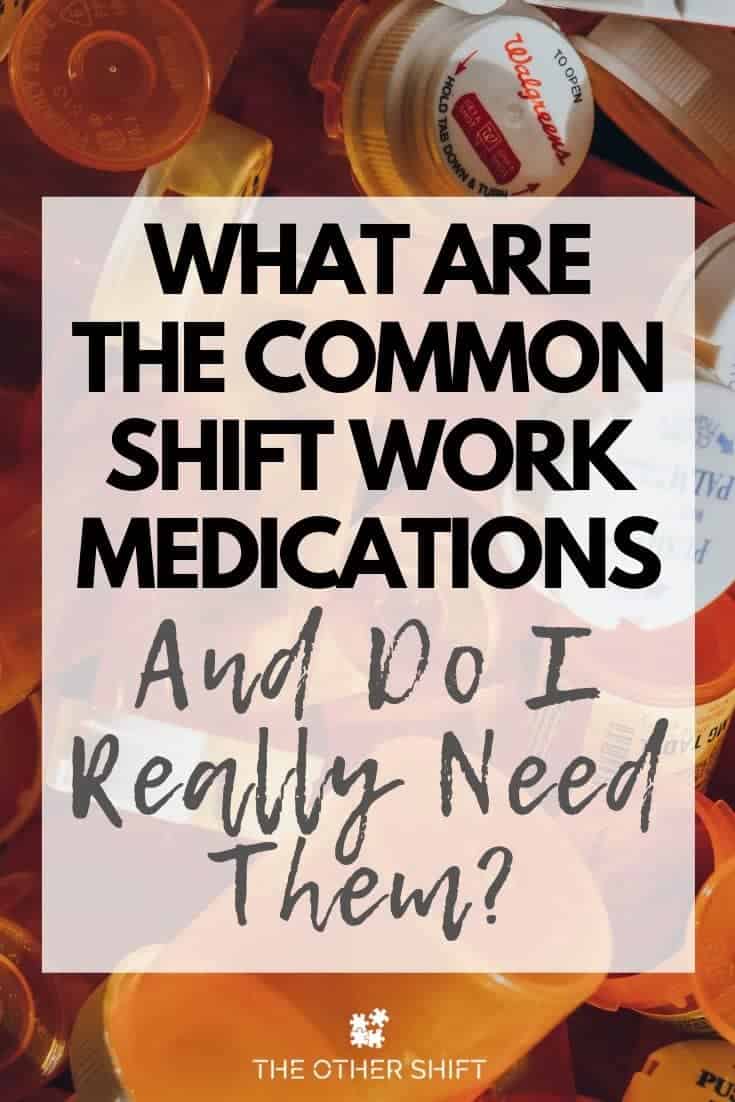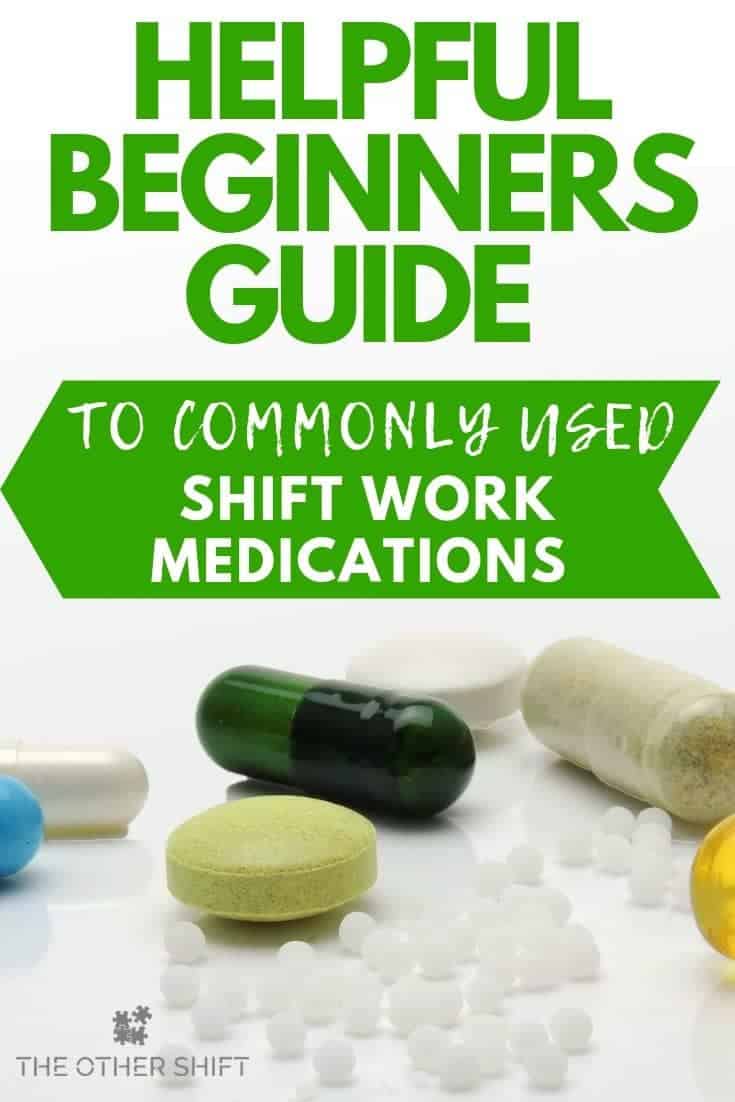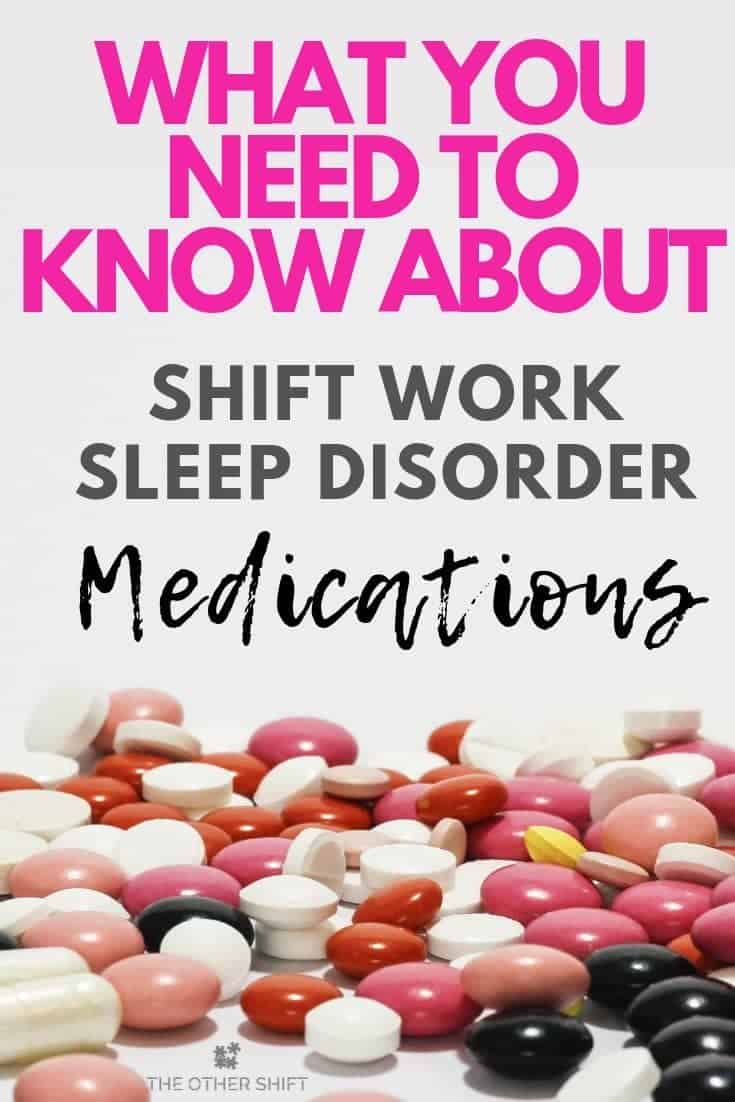Disclosure: This page may contain affiliate links, meaning we receive a commission if you decide to make a purchase through our links, but this is at no additional cost to you. Please read our disclosure and privacy statement for more info.
Do you struggle to fall and stay asleep? Have you been diagnosed with insomnia, shift work sleep disorder (SWSD) or narcolepsy? From sedative type medications, to those labeled as “wakefulness promoting,” let’s find out what’s recommended to shift workers, what they do and the side effects to be aware of.
Shift work medications like Provigil and Nuvigil can assist in relieving symptoms of shift work sleep disorder, narcolepsy and insomnia, though they don’t fix the cause. Melatonin is a hormone that regulates the sleep / wake cycle and can be taken orally, but we suggest consulting a doctor first.
Before “popping a pill” to help me sleep after a night shift or stay awake while working, I will look at all other alternatives first. However, there could be times a natural alternative is not enough to provide the relief we need.
This post explores common shift work medications used to treat the symptoms of regular shift work disorders. The information provided here is purely educational and not intended to endorse a specific drug or recommend therapy. You must see your doctor for that!
| Drug | Other Generic Names | Use |
|---|---|---|
| Provigil | Modafinil, Alertec | Sleep apnea, excessive daytime sleepiness, shift work sleep disorder (SWSD), narcolepsy, obstructive sleep apnea (OSA) |
| Nuvigil | Armodafinil | Attention deficit disorder (ADD), hypersomnia, SWSD, excessive daytime sleepiness associated with OSA, narcolepsy. We’ve also heard it used to treat chronic fatigue syndrome and major depressive disorder. |
| Zolpidem | Ambien, Zolpimist, Ambien CR, Ambien and Intermezzo | Insomnia |
| Eszopiclone | Lunesta | Insomnia |
| Melatonin * | Nil | Insomnia and trouble sleeping |
* The only medication on this list that you can buy over the counter and doesn’t require a script from your doctor.
Energy Hit – Shift Work Medications to Give You a Boost!
Shift Work Medication: Provigil
What is Provigil?
A “wakefulness-promoting” medication you take orally. It belongs in the stimulant family and you’re required to have a prescription by your doctor in order to get it.
Why Shift Workers Have Reported it Works:
- It improves focus and concentration, especially when taken to counteract fatigue.
- A great help if you work the swing shift – a late night start
- Less trouble reported when sleeping during the day
- Limited to no drowsiness felt during the night
- “Helps boost the effects of coffee” (source)
- Low chance of addiction (source)
- It can last 12-15 hours for most patients and takes about 45 minutes to start working. Full effects can be felt by the 2nd or 3rd hour.
Dosage:
Varies depending on what is being treated.
- Narcolepsy and OSA: 200mg taken orally once a day as a single dose in the morning (up to 400mg is a safe dosage).
- SWD: 200mg taken orally once a day as a single dose, approximately 1 hour prior to the start of the shift. However, some online resources say that starting at 100mg is a safer alternative.
Reported Side Effects From Shift Workers (Though Most Are Rare):
- Dehydration
- Headaches
- Lower back pain
- Nervousness
- Irrationally angry
- Upset stomach if taken on an empty stomach or just after eating
- Serious rashes including Stevens-Johnson Syndrome
- Persistent sleepiness during the shift making it unsafe to drive and use heavy machinery
- Feelings of being “high” have been reported. These symptoms were normally “mild” but can last from 2 to 6 hours.
- Weight loss – may be a good side effect for some? (source)
Other Important Things to Know:
- If you take warfarin, more frequent monitoring of prothrombin times / INR should be considered
- Ladies, are you pregnant or planning to become pregnant? It is not known if Provigil will harm your unborn baby so take caution.
- Provigil is processed in the liver so it’s recommended to seek guidance by your doctor if you’ve had issues with liver problems in the past.
- Provigil is available as the generic “modafinil” and can be cheaper than Nuvigil but it will still cost you.
- Use cautiously if you’ve got a history of arrhythmias or heart disease.
Think twice before reaching for a beer after a shift…
Provigil can have very nasty implications when taken with alcohol
Related post: Is Surviving Night Shift with a Morning Beer a Good Idea?

Shift Work Medication: Nuvigil
What is Nuvigil?
Nuvigil is a drug used to prevent sleepiness in people that suffer from various sleeping disorders. It directly impacts on the brain and central nervous system to keep you awake.
The difference between Provigil and Nuvigil is the chemicals inside them.
Despite not ever being formally compared in the laboratory (based on the research I’ve come across!), some night shift workers prefer Nuvigil because it lasts longer and you only need to take it once a day. (source)
Why Shift Workers Have Reported it Works:
- “I can actually stay awake and not have the overwhelming urge to sleep” (source)
- “I don’t feel an energy rush like with a cup of coffee” (source)
- No jitters or energy “hit”
- “I was able to stay awake at work and able to sleep during the day.” (source)
- Feeling of alertness without the tremors
- Limited chance of addiction or misuse
- It can last up to 15 hours for most patients
Dosage:
Available in 50mg, 100mg, 150mg, 200mg, 250mg tablets
- SWD: 150mg taken orally once a day as a single dose, approximately 1 hour prior to the start of their work shift.
- OSA and Narcolepsy: 150mg to 250mg taken orally once a day, as a single dose in the morning.
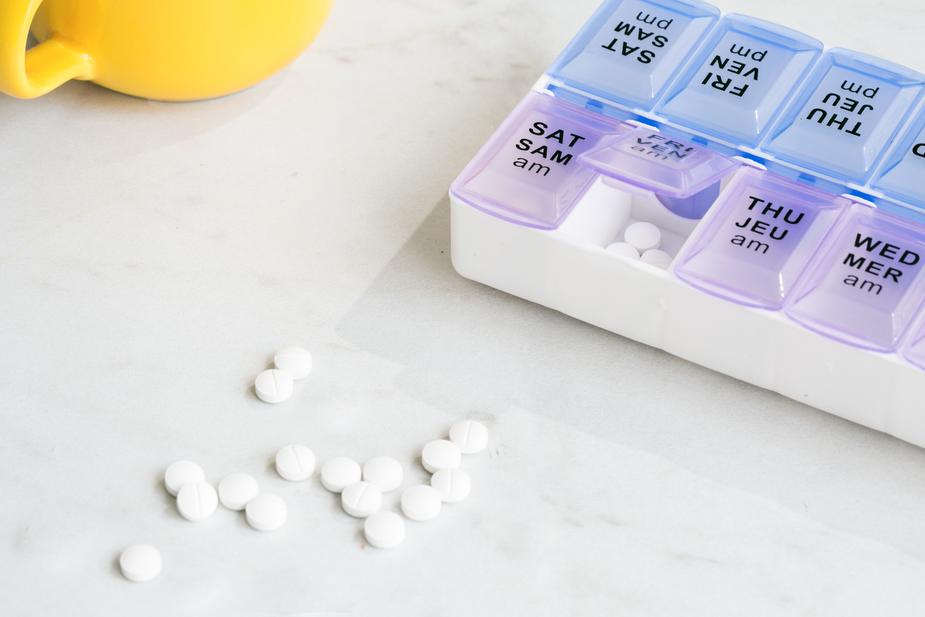
Reported Side Effects From Shift Workers (Though Most Are Rare):
- Some people state worsening symptoms of anxiety and depression
- Persistent sleepiness
- Headaches and inability to concentrate
- Nausea
- Dizziness and feelings of “fogginess”
- Diarrhea
- Flare-up of SLE Lupus
- Scattered hives
- Heart palpitations
- Eyes are sensitive to light
- Takes longer to work when taken with food (source)
Other important things to know:
- It can be expensive, especially without adequate insurance
- Don’t suddenly stop taking it as you may experience withdrawal symptoms such as shaking, sweating, chills, nausea and vomiting. Lowering the dose slowly may help decrease withdrawal symptoms.
- Be careful taking Nuvigil should you already take other medications. Consult your doctor and be transparent.
- It may decrease your reaction time and also make you dizzy, which can be detrimental for your job
- Nuvigil may decrease the effectiveness of hormonal birth control such as pills, patches or the ring. Be careful if you don’t want any surprises.
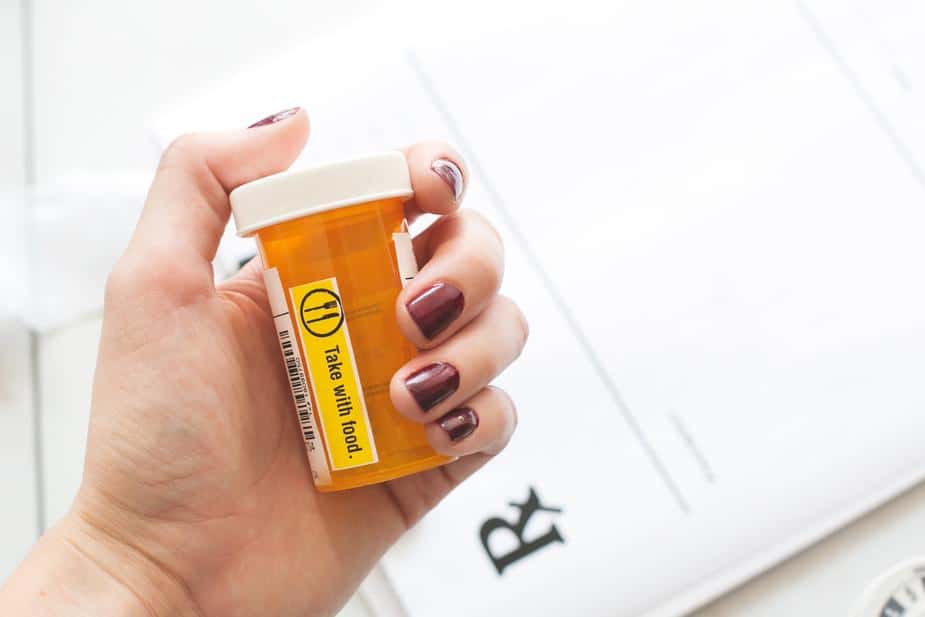
Good to Know…
Currently, Nuvigil and Provigil are the only two drugs approved by the Food and Drug Association (FDA) as wakefulness-promoting medications.
Sedatives – Shift Work Medications to Help You Sleep
Shift Work Medication: Zolpidem
What is Zolpidem or Ambien?
It is a class of drug called sedative-hypnotics used to treat insomnia in adults who struggle to fall asleep and stay asleep. This drug is used to slow the brains activity down, allowing for a restful sleep.
Why Shift Workers Have Reported it Works:
- Being able to finally obtain quality sleep. This can have a positive impact on physical and mental health
- “This medicine seems to help with my fear of falling asleep at night” (source)
- Some users state it’s easier to get off (stop taking) the drug over benzodiazepines
- “I awake refreshed every morning and can cope now with everything life throws at me.” (source)
- Works quickly. Sleepiness effects are felt within 30 minutes and can last up to 8 hours.
Dosage:
Available in many forms.
An oral tablet comes in an instant release, extended-release or controlled release, sublingual tablet (under the tongue) and an oral spray, which is sprayed into the mouth over the tongue.
It’s recommended to take immediately before bedtime.
Commonly Reported Side Effects From Shift Workers:
- Amnesia (forgetting things)
- Frequent awakening, then can’t fall back to sleep
- Hallucinations and a “heavy head”
- Bitter taste
- Drowsiness
- ‘Drugged, groggy feeling’
- Changes in appetite – commonly users want MORE food leading to overeating.
Other Important Things to Know About Ambien:
- Zolpidem will work faster if it is not taken with a meal or immediately after a meal.
- If you cannot stay in bed for at least 4 hours (recommended 7-9 hours) – then don’t take it. If you get up too soon, you may experience drowsiness and problems with memory, alertness or coordination.
- Do not chew, split or crush extended-release tablets
- It’s recommended to take for only a short period of time (around 2 weeks). Any longer and the effects may decrease and the risk of dependence is higher
- Alcohol can make the side effects of zolpidem worse.
- Works quickly. Sleepiness effects are felt within 30 minutes and can last up to 8 hours.
- If you miss a dose, skip it. Don’t double dose.
- Store in a closed container at room temperature, away from heat, moisture (bathroom) and direct light.

Shift Work Medication: Eszopiclone
What is Eszopiclone?
Similar to Ambien, eszopiclone is a sedative-hypnotics drug which may help you fall asleep faster and stay asleep longer. It may also lessen how often you wake up during the night by calming your brain to sleep.
Why Shift Workers Have Reported it Works:
- “This pill is the best ever to help sleep, no druggy feeling, no tired feeling when you wake up” (source)
- Wake up refreshed, no hangover feeling
- Fall asleep quickly and stay asleep
Dosage:
The recommended starting dose is 1mg. But dosing can be raised to 2mg or 3mg after discussion with your doctor.
Commonly Reported Side Effects From Shift Workers:
- Forgetfulness
- Doing activities and behaviors including sleepwalking, sleep-driving, with little to no recollection of what occurred.
- Horrible, bitter taste, dry mouth and bad breath
- Unusual dreams
- Numbness in the tongue
- Decreased sexual desire
- Painful menstrual periods
- Breast enlargement in males
- Heartburn
Other Important Things to Know About Eszopiclone:
- Do not take eszopiclone with or shortly after a heavy, high-fat meal as it may not work as well
- Only take eszopiclone if you will be able to stay in bed for at least 7 to 8 hours after taking the medication. (source)
- It can take a while for your body to adjust. Some report sleeping well within 7 to 10 days after starting to take eszopiclone.
- Don’t store the is medication in the bathroom or within reach of kids.
- Risk of dependence. In most cases, it should only be used for short periods of time, such as 1 or 2 days, and for no longer than 1 or 2 weeks.

Shift Work Medication: Melatonin
What is Melatonin?
Melatonin is a natural hormone produced in the brain that does two things. Firstly, it maintains our circadian rhythm (body clock) and secondly it helps us sleep.
The natural amount present is dependent on the time of day; rising in the evening and falling in the morning.
Melatonin is one of the only sleep aids which can be bought over the counter without a prescription in the United States but varies internationally.
Why Shift Workers Have Reported it Works:
- It helps you transition from night shift to day shift (source)
- Almost absent risk of tolerance and dependence (source)
- Melatonin is classified as a dietary supplement, not a drug or vitamin (source)
- Limited withdrawal symptoms (source)
- Profoundly better sleep post working night shift (source)
Dosage:
Melatonin is available in a few different forms. Tablet (hard and chewy), topically (cream), sublingual (under the tongue) or injected into the vein.
The doses available are 1mg, 3mg, 8mg, 10mg and 12mg.
It’s recommended to commence on the lowest dose possible, such as 1mg – 3mg and there are a few reasons for this.
Firstly, as it’s a hormone and not a drug, the regulations are different in regards to the Food and Drug Association (FDA) and how strict their testing is.
Studies have shown that the doses vary from brand to brand and why a lower dose is better in this case. So read the label and work up your way up as required.
Secondly, users have reported feeling “hung over” when the dose is too high – something I have personally experienced when consuming after a night shift. My sleep was extremely deep, however when waking, it too me a good 60-90 minutes to get myself in order.
Commonly Reported Side Effects From Shift Workers Using Melatonin:
- Vivid dreams
- Groggy feeling
- “I feel hungover”
- Headaches
- Dizziness
- Daytime sleepiness
- Short term feelings of depression
- Stomach cramps
- Irritability
- Decreased libido
- For men, breast enlargement (gynecomastia) and reduced sperm count are also possible
Read more about melatonin in a related post, “My Top Tip for Taking Melatonin on Night Shift: Plus 10 More“
Other Important Things to Know About Melatonin:
- Do not drive or use machinery for four to five hours after taking melatonin
- The doses can vary from brand to brand so always buy one you know and trust
- Melatonin can interact badly with other medications. Such as those taken for aches and pains, heart issues, epilepsy, diabetes and pregnancy. Seek advice from your doctor if you take these medications.


(click to view via Amazon.com)
Other Medications Used to Treat Symptoms Experienced by Shift Workers
- Adderall – Is an amphetamine and is an addictive prescription stimulant. Is used in the treatment of attention deficit hyperactivity disorder (ADHD) and narcolepsy experienced with shift work.
- Triazolam (Halcion) – Sedative to treat insomnia
- Temazepam (Restoril) – Sedative, also to treat insomnia
- Methylphenidate (Ritalin) – Stimulant used to treat ADHD and narcolepsy.
- Ramelteon (Rozerem) – Sedative
- Zaleplon (Sonata) – Sedative
- Lisdexamfetamine (Vyvanse) – Stimulant used to treat ADHD and binge-eating disorders. It’s also expensive, as it’s only available as a brand name.
- Celexa (Citalopram) – It’s used to treat depression, improve your energy level and feelings of well-being. (Source)
- Promethazine (Phenadoz, Phenergan, Promethegan) – Antihistamine. Great for providing relief in obtaining day time sleep or when trying to switch from one schedule to the next
- Benadryl (diphenhydramine) – Antihistamine available over-the-counter. Also great for providing relief in obtaining day time sleep or when trying to switch from one schedule to the next
Bottom line…
Provigil (modafinil) and Nuvigil are schedule IV controlled substances. They have a low potential for abuse in comparison to Adderall or Ritalin which are schedule II. However, they still require a prescription from your doctor. The doctor can also restrict the dose order specific to your needs.
Non-Medicated Treatments for Common Shift Work Disorders
- Blue light blocking glasses: Blue light plays havoc with our sleep patterns and having a pair of blue light blocking glasses
 might be what you need to get your sleep cycle back on track. See our shift work resources page for the pair we recommend and why here.
might be what you need to get your sleep cycle back on track. See our shift work resources page for the pair we recommend and why here.


- Alarm clocks which help you sleep: 7 Best Alarm Clocks for Night Shift Workers
- Shift Work Sleep Disorder (SWSD): Shift Work Sleep Disorder (SWSD) – What Is It and How to Avoid It?
- Falling to sleep when you’re not tired: How to Fall Asleep Quickly Even When You’re Not Tired
Summary: Shift Work Medication Review – What Should You Be Taking?
Irrespective of the medication, you should consult a doctor before consuming an aid to assist with shift work.
While medications have been proven effective in many cases, they should only be used for a short period of time until you are able to sleep naturally.
Also don’t forget, taking medications are not your only option and there are natural remedies available.
Dig deep into finding the cause of your shift work problems and don’t be afraid to try new methods.
Us shift workers need to put in a little more “work” with managing our roster than a 9-5 counterpart, but it’s definitely possible to live a happy and healthy life.
Cheers,

Disclosure: This page may contain affiliate links, meaning we receive a commission if you decide to make a purchase through our links, but this is at no additional cost to you. Please read our disclosure and privacy statement for more info.

